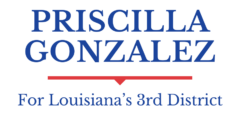The Pregnant Women in Custody Act (H.R. 6878) aims to establish standards for the treatment and care of pregnant women who are incarcerated. Key provisions of the bill include:
- Prohibition of Restraints: The bill restricts the use of restraints on pregnant women during labor, delivery, and postpartum recovery, except in extraordinary circumstances.
- Healthcare Requirements: It mandates regular health assessments, appropriate prenatal care, and postpartum care for incarcerated pregnant women. This includes dietary and hygiene needs specific to pregnancy.
- Data Collection: The bill requires the collection and reporting of data on the health needs and outcomes of pregnant women in custody to improve future policies and care standards.
- Training and Guidelines: It calls for the development and implementation of training programs for correctional officers and staff regarding the physical and mental health needs of pregnant inmates.
- Family Support: The legislation includes provisions to ensure that incarcerated pregnant women have access to programs that support family bonding and parenting education.
Clay Higgins’ Vote Against the Bill
Representative Clay Higgins’ decision to vote against the Pregnant Women in Custody Act can be interpreted as an attack on the well-being of incarcerated women and their children. By opposing the bill, he is effectively:
- Ignoring Health and Safety: His vote signifies a disregard for the essential healthcare needs of pregnant inmates, potentially endangering their lives and the lives of their unborn children.
- Disregarding Human Dignity: The bill’s provisions aim to ensure that pregnant women are treated humanely. Voting against it undermines efforts to provide humane and respectful treatment to a vulnerable population.
Voting against H.R. 6878, the Pregnant Women in Custody Act, represents a profound neglect of the health and safety needs of pregnant women in the prison system. Here are the detailed implications of such a vote:
Immediate Health and Safety Needs
- Medical Neglect: Without the mandated healthcare provisions in the bill, pregnant women in custody are at risk of inadequate medical attention. Proper prenatal and postnatal care are essential to preventing complications such as preterm labor, gestational diabetes, and preeclampsia. The absence of such care can lead to severe health issues for both the mother and the child (Congress.gov | Library of Congress) (ProPublica).
- Use of Restraints: The bill restricts the use of restraints on pregnant women during labor, delivery, and postpartum recovery. Voting against it means allowing practices that can cause physical and psychological harm to pregnant women, increasing the risk of injury during childbirth (Congress.gov | Library of Congress).
Broader Implications for Public Health
- Child Health Outcomes: The health of newborns can be significantly compromised if their mothers do not receive adequate prenatal care. Poor health outcomes in infancy can have long-term effects on a child’s development, potentially leading to increased healthcare costs and intervention needs later in life (ProPublica).
- Public Health Burden: Neglecting the healthcare needs of incarcerated pregnant women can result in broader public health issues. Complications arising from inadequate care can lead to increased healthcare costs for the community, as untreated conditions might require more extensive medical intervention later (Congress.gov | Library of Congress).
Human Rights and Ethical Considerations
- Human Dignity: Voting against the bill undermines the humane treatment of incarcerated individuals. Pregnant women, a particularly vulnerable group, deserve care and respect. Denying them proper healthcare and subjecting them to potentially harmful practices such as the use of restraints is a violation of their basic human rights (Congress.gov | Library of Congress) (ProPublica).
- Moral Responsibility: Society has a moral obligation to ensure that all individuals, regardless of their incarceration status, receive adequate healthcare. This is particularly critical for pregnant women, whose well-being directly affects the health of their unborn children (ProPublica).
Social and Legal Implications
- Inconsistent Standards: Voting against the bill contributes to inconsistent standards of care across correctional facilities. This variability can lead to disparities in the treatment of pregnant inmates, with some receiving adequate care while others do not, depending on the facility’s policies and resources (ProPublica).
- Legal Liabilities: Inadequate care for pregnant women in custody can expose correctional facilities and the government to legal challenges. Failure to provide necessary medical care can be seen as a violation of constitutional rights, leading to lawsuits and legal costs (Congress.gov | Library of Congress).
Impact on Families and Communities
- Family Bonding and Parenting: The bill includes provisions for programs that support family bonding and parenting education. Voting against it deprives incarcerated women of opportunities to learn essential parenting skills and to bond with their newborns, which is crucial for the child’s emotional and psychological development (ProPublica).
- Community Reentry: Proper healthcare and support programs for pregnant women in custody can facilitate better reentry into the community post-release. Ensuring the health of mothers and their children helps in their successful reintegration, reducing recidivism rates, and promoting community stability (ProPublica).
- Neglecting Public Health: The lack of proper prenatal and postnatal care can lead to broader public health issues. Ensuring that incarcerated women receive appropriate care helps prevent health problems that could burden the healthcare system in the long run.Representative Clay Higgins’ vote against H.R. 6878 neglects the immediate and critical health and safety needs of pregnant women in custody, while also disregarding broader public health, human rights, and ethical considerations. This vote reflects a lack of commitment to protecting vulnerable populations and ensuring consistent and humane standards of care across the correctional system (Congress.gov | Library of Congress) (ProPublica).Representative Clay Higgins’ vote against H.R. 6878 neglects the immediate and critical health and safety needs of pregnant women in custody, while also disregarding broader public health, human rights, and ethical considerations. This vote reflects a lack of commitment to protecting vulnerable populations and ensuring consistent and humane standards of care across the correctional system (Congress.gov | Library of Congress) (ProPublica).
